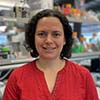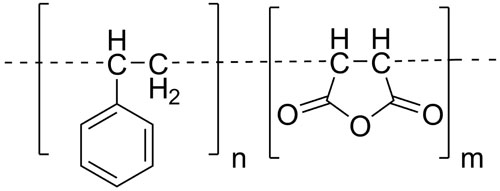Membrane Protein Conference on May 12, 2026
Our next Membrane Protein Conference will be held on Tuesday May 12, 2026 from 2-5pm CET (8-11 am ET) and will feature a series of 20 minute talks covering the latest findings about membrane structure and function, lipid-protein interactions as well as advances for purification and resolution of native membrane assemblies.
We are seeking to explore and disseminate new concepts and tools in the field of membrane protein biology. Free student tickets are available, and registration is 20 or 30 euros for academics or industry to help cover our costs as an independent organization. Dip in and out of this zoom meeting as needed and receive the recordings afterwards.
Membrane Protein Conference on May 12, 2026
Speakers include:
 Amedee des Georges, Associate Professor, Molecular Pathobiology, NYU College of Dentistry and Investigator in the NYU Pain Research Center, will present on a exciting new structure of a membrane protein that has been resolved in liposomes by cryo-EM (more details to follow).
Amedee des Georges, Associate Professor, Molecular Pathobiology, NYU College of Dentistry and Investigator in the NYU Pain Research Center, will present on a exciting new structure of a membrane protein that has been resolved in liposomes by cryo-EM (more details to follow).
 Cristina Santarossa, Postdoctoral Fellow in Gira Bhabha's lab at Johns Hopkins University, who recently published LetA defines a structurally distinct transporter family in Nature.
Cristina Santarossa, Postdoctoral Fellow in Gira Bhabha's lab at Johns Hopkins University, who recently published LetA defines a structurally distinct transporter family in Nature.
 Alexandra Steinhauser, PhD student, Faculty of Science and Engineering, U Groningen, who recently published Home is where the lipids are: a comparison of MSP and DDDG nanodiscs for membrane protein research in Soft Matter.
Alexandra Steinhauser, PhD student, Faculty of Science and Engineering, U Groningen, who recently published Home is where the lipids are: a comparison of MSP and DDDG nanodiscs for membrane protein research in Soft Matter.
 Radu Aricescu, Professor, MRC Laboratory of Molecular Biology, U Cambridge, who recently published GABAA receptor gating imaged on the millisecond timescale on bioRxiv.
Radu Aricescu, Professor, MRC Laboratory of Molecular Biology, U Cambridge, who recently published GABAA receptor gating imaged on the millisecond timescale on bioRxiv.
MPC Program and Videos for January 20, 2026
2:00 pm CET Tips & Tricks. Introduce yourself and ask a question. Zoom link will be sent to registrants, who also receive videos recordings of the talks.
Session 1 Chair: Naomi Pollock, Lecturer, School of Biosciences, Aston U
 2:05 pm CET Troy Kervin, PhD Student with Peijun Zhang, U Oxford will present Factory Reset: How to Uninstall Lipid Raft Bloatware and Migrate to the Proteolipid Code. Recent papers include Sheaf-theoretic representation of the proteolipid code, A unifying membrane model and Lipid antagonists regulate protein clustering.
2:05 pm CET Troy Kervin, PhD Student with Peijun Zhang, U Oxford will present Factory Reset: How to Uninstall Lipid Raft Bloatware and Migrate to the Proteolipid Code. Recent papers include Sheaf-theoretic representation of the proteolipid code, A unifying membrane model and Lipid antagonists regulate protein clustering.
 2:25 pm CET Xiaolong Liu, Postdoctoral Researcher with Ben Berks, U Oxford, presented on a new paradigm for outer membrane protein biogenesis in the Bacteroidota, as published recently in Nature.
2:25 pm CET Xiaolong Liu, Postdoctoral Researcher with Ben Berks, U Oxford, presented on a new paradigm for outer membrane protein biogenesis in the Bacteroidota, as published recently in Nature.
2:45 pm CET break
Session 2 Chair: Igor Tascón, Ikerbasque Research Fellow and Group Leader of Membrane Transport Mechanisms lab, BIOFISIKA Institute
 2:50 pm CET Sara García-Linares, Professor, Complutense, University of Madrid, on elucidating the structure and assembly mechanism of actinoporin pores in complex membrane environments as published in Sci Adv.
2:50 pm CET Sara García-Linares, Professor, Complutense, University of Madrid, on elucidating the structure and assembly mechanism of actinoporin pores in complex membrane environments as published in Sci Adv.
 3:10 pm CET Antreas Kalli, Associate Professor, Discovery and Translational Science Department, University of Leeds, who recently published on regulation of PIEZO1 channel force sensitivity by interblade handshaking in Sci Adv.
3:10 pm CET Antreas Kalli, Associate Professor, Discovery and Translational Science Department, University of Leeds, who recently published on regulation of PIEZO1 channel force sensitivity by interblade handshaking in Sci Adv.
3:30 pm CET break
Session 3 Chair: Evelyn Okorafor, PhD student and Graduate Research Assistant, Chemistry and Biochemistry Dept, Miami University

 3:35 pm CET Ana Fernandez-Marino, Assistant Professor, UCD Anschutz Medical Campus and Xiaofeng Tan, Postdoctoral Fellow with Jiansen Jiang, NIH, on the structural basis of fast N-type inactivation in Kv channels, as published in Nature.
3:35 pm CET Ana Fernandez-Marino, Assistant Professor, UCD Anschutz Medical Campus and Xiaofeng Tan, Postdoctoral Fellow with Jiansen Jiang, NIH, on the structural basis of fast N-type inactivation in Kv channels, as published in Nature.
 3:55 pm CET Dawid Zyla, Instructor with Erica Saphire, La Jolla Institute for Immunology, who recently published Stabilized Full-Length Measles Fusion Protein Elicits Potent Immunity and Protection In Vivo on bioRxiv.
3:55 pm CET Dawid Zyla, Instructor with Erica Saphire, La Jolla Institute for Immunology, who recently published Stabilized Full-Length Measles Fusion Protein Elicits Potent Immunity and Protection In Vivo on bioRxiv.
 4:15 pm CET Mackenzie Thompson, Postdoctoral Researcher, Dept of Molecular & Cell Biology, UC Berkeley, who recently published Asynchronous subunit transitions prime acetylcholine receptor activation in Science.
4:15 pm CET Mackenzie Thompson, Postdoctoral Researcher, Dept of Molecular & Cell Biology, UC Berkeley, who recently published Asynchronous subunit transitions prime acetylcholine receptor activation in Science.
4:35 Closing discussions
Fill out our short Conference Evaluation Form, we value your feedback.
Speaker Awards
Sponsored by Nanosene. Our previous winners:
- Alyssa Ward, PhD Student, U Tennessee Knoxville
- Kirill Nadezhdin, Columbia University Irving Medical Center
- Rhythm Shukla, University of Utrecht
- David Glück, Karl-Franzens-Universität Graz
- Johanna Syrjanen, Cold Spring Harbor Laboratory
- Gestél Kuyler, Stellenbosch & Coventry Universities
- Elaine Bernard, graduate student, Stellenbosch U
- Evelyn Okorafor, graduate student, Miami U
- Ruby Huynh, undergraduate student, Arizona State U
- Arba Zhao, high school student at Webb High School
- Elissa Moller, PhD student, NICHD
- Claire Coupland, Postdoc, UToronto
- Frank Tucci, PhD student at Northwestern U
- Surabhi Kokane, PhD student, Stockholm U
Background on SMALP
The SMALP network is an open forum initiated by the international research community. We are developing and using amphipathic copolymers as alternatives to conventional detergents, which tend to dissociate, destabilize and deactivate native membrane proteins.

A variety of amphipathic polymers such as styrene maleic acid have been found to directly and spontaneously solubilize proteins and bound lipids from membranes when activated. This provides opportunities for understanding and exploiting the structure and function of native membrane protein complexes.
As SMALP technology is relatively new, the participation of the wider community and sharing of new ideas and practices amongst researchers is the best way to ensure continued rapid development of the field.
The SMALP network offers polymers, methods and meetings to support the growing community of scientists and companies interested in the preparation of membrane nanodiscs formed by polymers including styrene maleic acid for biological research and drug discovery applications.
Register for a day of insightful talks from experts in the structural biology and functions of membrane proteins and nanodisc development, discussions with academic and industry leaders, and enjoy breakfast, lunch and coffee breaks on us.
These events are offered to bring together academic and industry experts, postdocs and students who are interested in membrane protein structural biology, lipidomics, proteomics, target discovery and biophysical analysis of bilayers and amphipathic polymers.
We welcome researchers from across academia and industry to join us in lively discussions and debate about the latest advances in native nanodiscs, membrane proteins, polymer chemistry, lipid biophysics, structural biology, and applications including drug discovery and delivery.

